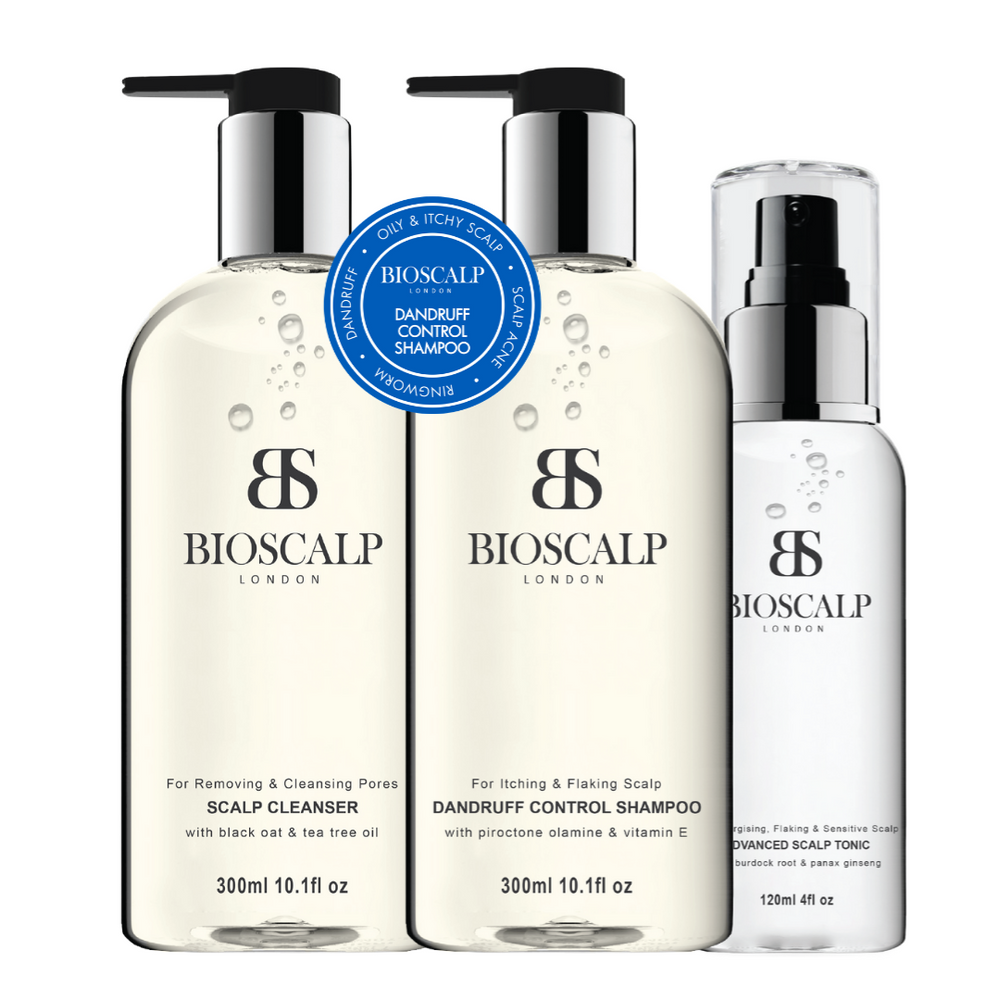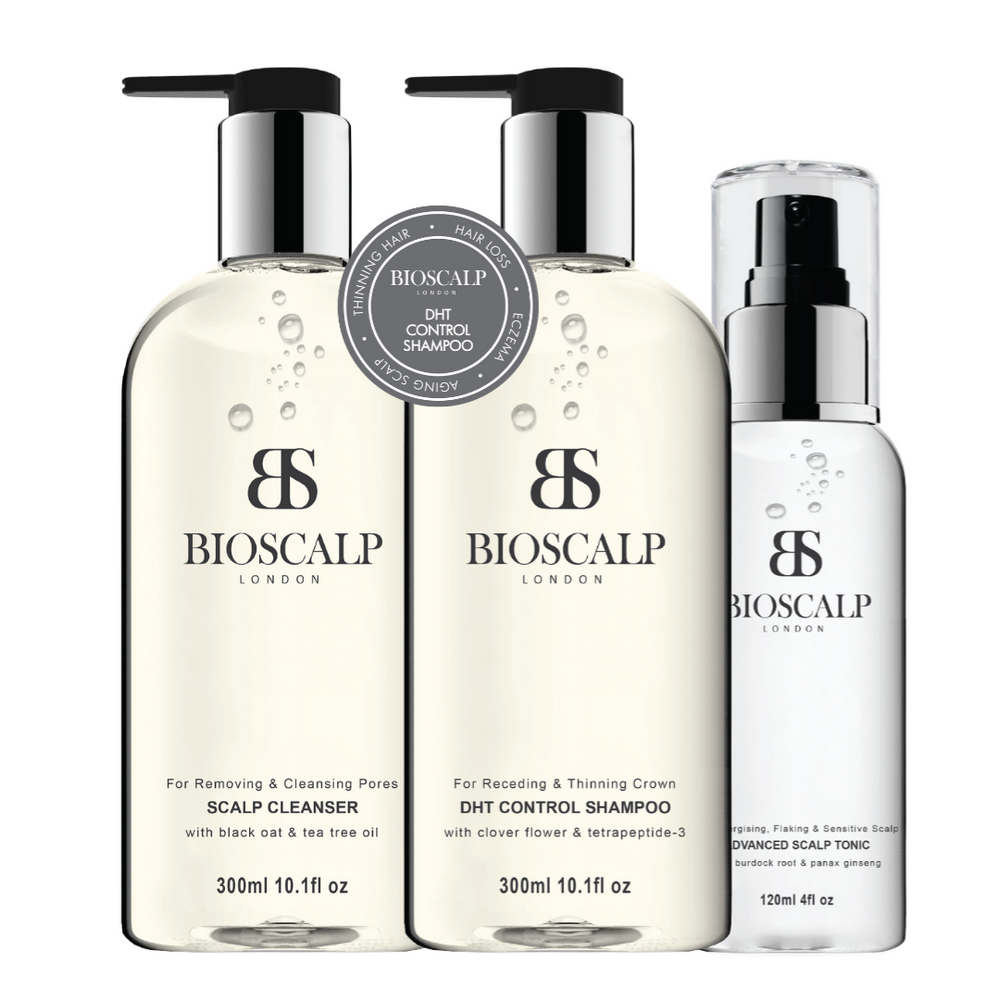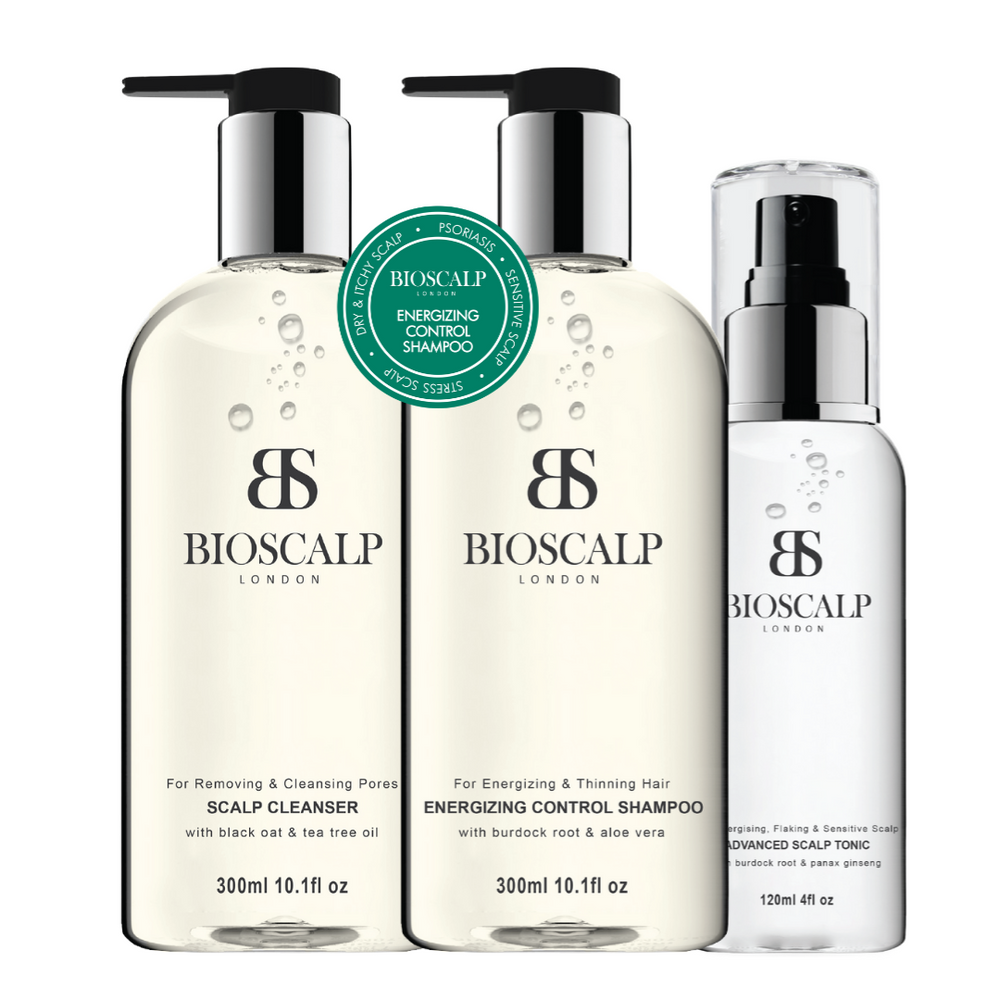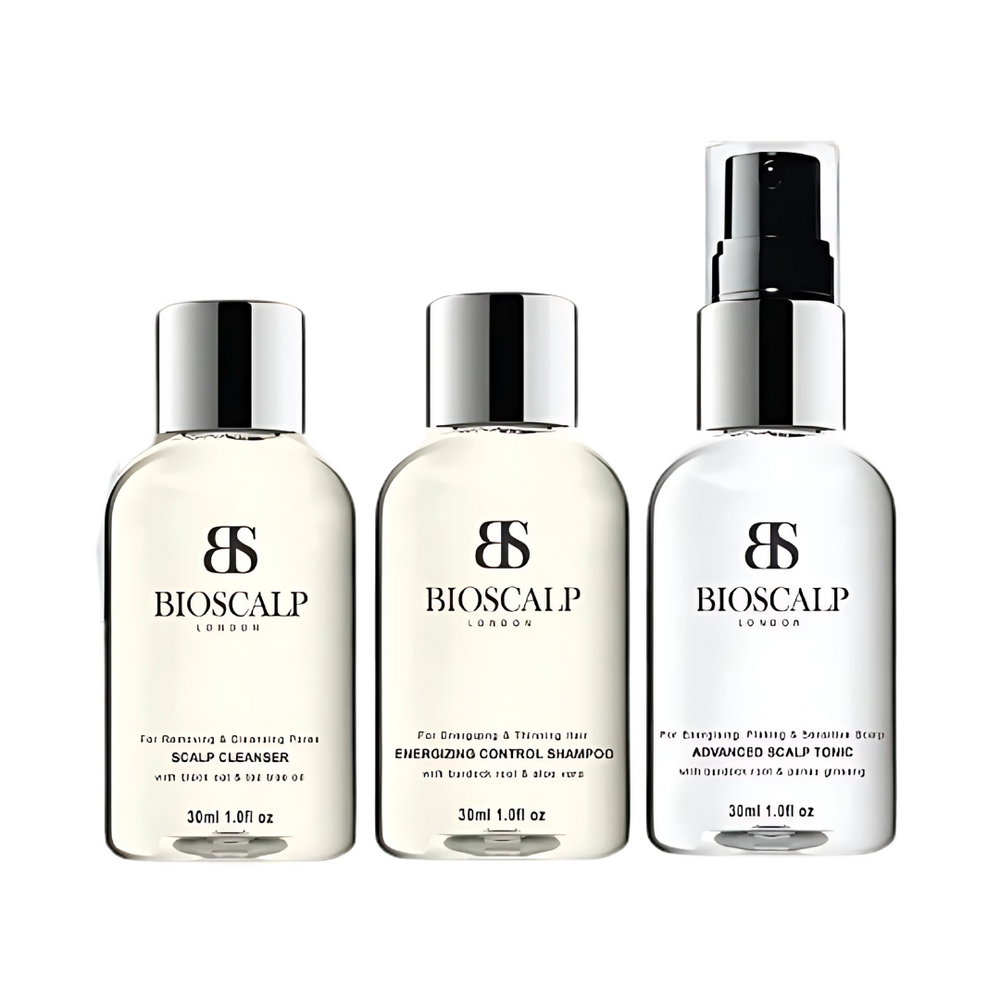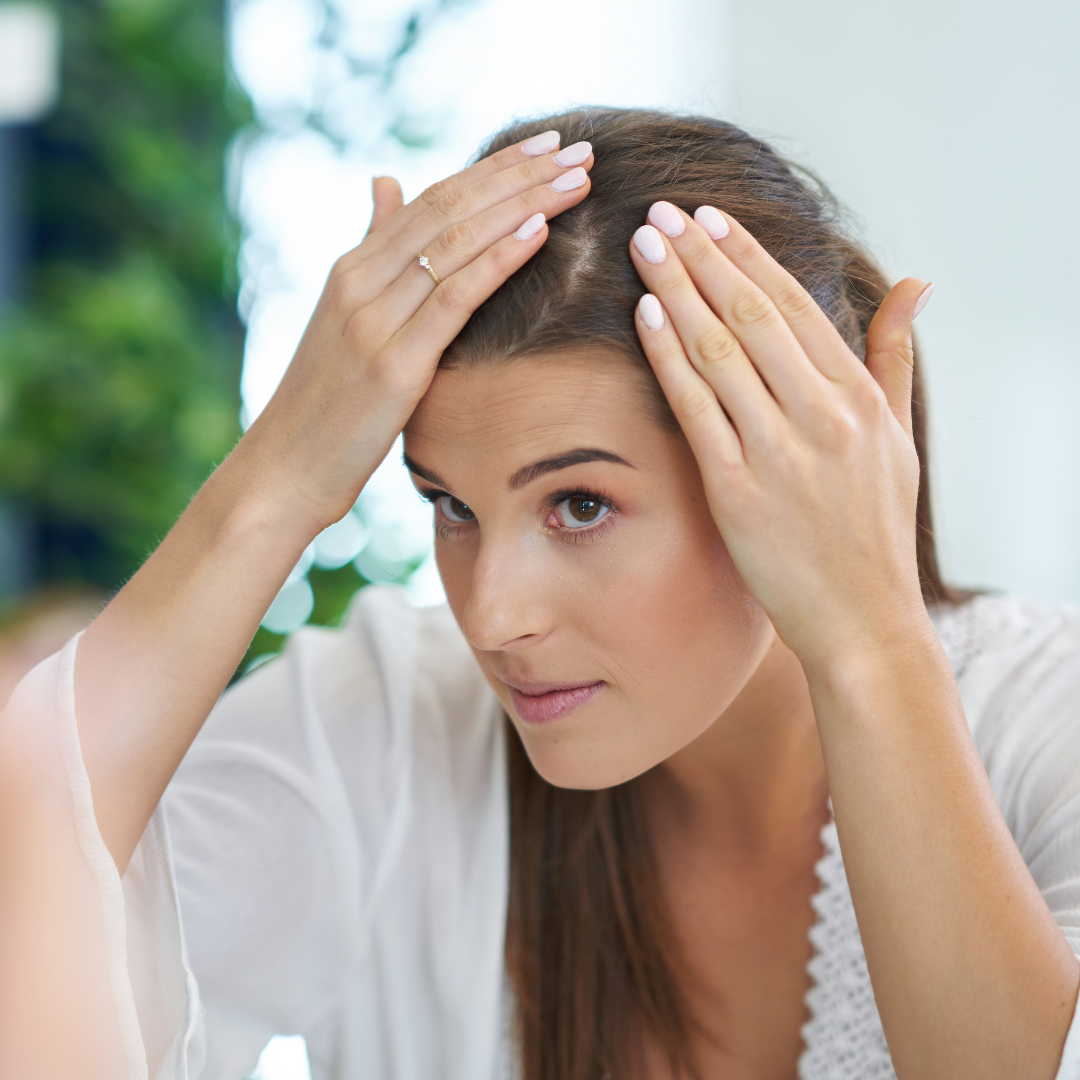If you're dealing with an itchy, flaky scalp that feels tight and uncomfortable, you're not alone. Up to 15% of the population experiences dry scalp, and with winter weather and modern lifestyle factors, this number continues to grow. The good news? Treating dry scalp is straightforward once you understand what's causing it and which remedies actually work.
This comprehensive guide will walk you through everything you need to know about treating dry scalp effectively, from understanding the root causes to implementing proven solutions that provide lasting relief.

Understanding Dry Scalp vs. Dandruff: A Critical Distinction
Before diving into treatments, it's essential to understand what you're actually dealing with. Many people mistakenly treat dry scalp as dandruff, which can actually worsen the condition.
What Is Dry Scalp?
Dry scalp occurs when your scalp doesn't produce enough natural oils to keep the skin moisturized. This results in:
- Small, dry white flakes
- Tight, uncomfortable feeling on the scalp
- Persistent itching
- Dull, brittle hair
- Sensitivity when touching the scalp
How It Differs from Dandruff
Dandruff, on the other hand, is caused by excess oil production combined with a fungal infection, producing:
- Large, oily flakes (white or yellow)
- Greasy scalp appearance
- Different treatment requirements
This distinction matters because using anti-dandruff products on a dry scalp can strip away even more moisture, making your symptoms worse.

What Causes Dry Scalp?
Understanding the causes helps you prevent future flare-ups:
Environmental Factors
- Winter weather: Cold, dry air draws moisture from your skin
- Indoor heating: Creates additional dry air that depletes scalp moisture
- Hard water: Can reverse the benefits of moisturizing products
- Seasonal changes: Sudden temperature shifts stress the scalp
Lifestyle and Product-Related Causes
- Over-washing: Daily shampooing strips natural oils
- Harsh shampoos: Sulfates and strong detergents remove protective oils
- Heat styling: Excessive blow-drying and hot tools dry out the scalp
- Product buildup: Styling products can block moisture absorption
- Chemical treatments: Hair dyes and relaxers can damage the scalp barrier
Health-Related Factors
- Age: Skin produces fewer natural oils as we age
- Skin conditions: Eczema or psoriasis affecting the scalp
- Dehydration: Not drinking enough water affects skin moisture
- Nutritional deficiencies: Lack of essential fatty acids and vitamins
Proven Treatments for Dry Scalp Relief
1. Switch to Gentle, Moisturizing Shampoos
The foundation of dry scalp treatment starts with the right shampoo. Look for:
- Sulfate-free formulas that won't strip natural oils
- Products with vitamin B3 (niacinamide) to protect the skin barrier
- Gentle cleansers that maintain scalp pH balance
For a comprehensive approach, consider specialized scalp care systems like the BioScalp Energizing Control Kit, which is specifically formulated to address dry scalp while promoting overall scalp health.
2. Adjust Your Washing Routine
Finding the right washing frequency is crucial:
- If your scalp feels dry with daily washing, scale back to 2-3 times per week
- If symptoms worsen when you skip washes, maintain regular cleansing
- Use lukewarm water instead of hot water
- Focus shampoo on the scalp, not the hair lengths
When selecting a shampoo, products like the BioScalp Energizing Shampoo are designed to cleanse effectively without over-drying, making them ideal for sensitive, dry scalps.
3. Implement Oil Treatments
Natural oils provide deep moisturization and help restore the scalp's protective barrier:
Coconut Oil Treatment
- Apply warm coconut oil directly to the scalp
- Massage gently for 5 minutes to improve circulation
- Leave overnight or for at least 30 minutes
- Wash out with gentle shampoo
Other Beneficial Oils
- Olive oil: Rich in fatty acids for moisture
- Jojoba oil: Mimics natural sebum production
- Argan oil: Provides vitamin E and antioxidants
- Tea tree oil: Offers antimicrobial benefits (dilute before use)
4. Try Natural Home Remedies
These kitchen-based treatments can provide immediate relief:
Aloe Vera Scalp Mask
- Apply pure aloe vera gel to the scalp
- Leave for 20-30 minutes
- Rinse with cool water
- Helps soothe irritation and lock in moisture
Honey and Yogurt Treatment
- Mix 2 tablespoons honey with 3 tablespoons plain yogurt
- Apply to scalp and leave for 20 minutes
- Provides moisture and gentle exfoliation
Apple Cider Vinegar Rinse
- Mix 1 part apple cider vinegar with 3 parts water
- Use as a final rinse after shampooing
- Helps balance scalp pH and remove buildup
5. Use Scalp-Specific Treatments
Modern scalp care has evolved beyond basic shampooing:
- Scalp serums with hyaluronic acid for intense hydration
- Leave-in treatments that continue working between washes
- Scalp scrubs to gently remove dead skin cells
- Overnight scalp masks for deep conditioning

Creating a Complete Dry Scalp Care Routine
Daily Care
- Avoid scratching, which can damage the scalp barrier
- Use a soft-bristled brush to distribute natural oils
- Stay hydrated by drinking adequate water
- Protect your scalp from extreme temperatures
Weekly Treatments
- Apply a deep conditioning oil treatment
- Use a gentle scalp scrub if needed
- Assess your routine and adjust as necessary
Monthly Maintenance
- Evaluate your hair care products for harsh ingredients
- Clean hairbrushes and tools to prevent bacteria buildup
- Consider seasonal adjustments to your routine
When to Seek Professional Help
While most dry scalp cases respond well to home treatment, see a dermatologist if you experience:
- Symptoms persisting after 2-3 weeks of treatment
- Severe redness, swelling, or pain
- Signs of infection (yellow crusting, oozing)
- Hair loss accompanying the dryness
- Spreading rashes or unusual scalp changes
A dermatologist may prescribe:
- Topical corticosteroids for inflammation
- Medicated shampoos for underlying conditions
- Specific treatments for eczema or psoriasis
Preventing Future Dry Scalp Issues
Environmental Protection
- Use a humidifier during dry seasons
- Wear hats in extreme weather
- Install a shower filter if you have hard water
Product Selection Tips
- Read ingredient labels carefully
- Avoid products with harsh sulfates and alcohols
- Choose fragrance-free options if sensitive
- Patch test new products before full use
Lifestyle Adjustments
- Maintain a balanced diet rich in omega-3 fatty acids
- Manage stress, which can affect scalp health
- Limit heat styling and chemical treatments
- Regular scalp massages to improve circulation
The Bottom Line: Consistency Is Key
Treating dry scalp successfully requires patience and consistency. Most people see improvement within 2-3 weeks of implementing these changes. Remember that everyone's scalp is different, so what works for one person may need adjustment for another.
Start with the basics: switch to a gentle, moisturizing shampoo, adjust your washing frequency, and incorporate regular oil treatments. As you build your routine, pay attention to how your scalp responds and adjust accordingly.
With the right approach and quality products designed for scalp health, you can achieve lasting relief from dry scalp symptoms and maintain a healthy, comfortable scalp year-round. The key is understanding your scalp's unique needs and providing consistent, gentle care that supports its natural moisture balance.
Frequently Asked Questions
How long does it take to see results from dry scalp treatments?
Most people notice improvement within 1-2 weeks of consistent treatment, with significant relief typically occurring within 2-3 weeks.
Can dry scalp cause hair loss?
While dry scalp doesn't directly cause hair loss, the associated itching and scratching can damage hair follicles and lead to breakage, which may appear as hair loss.
Should I exfoliate a dry scalp?
Gentle exfoliation can help remove dead skin cells, but avoid harsh scrubbing. Use products specifically designed for sensitive scalps and limit exfoliation to once per week.
Can diet affect dry scalp?
Yes, staying hydrated and consuming foods rich in omega-3 fatty acids, vitamins A and E, and zinc can support scalp health from within.
Is it safe to use oils on my scalp if I have fine hair?
Yes, but apply oils primarily to the scalp rather than hair lengths, use lighter oils like jojoba, and ensure thorough washing to prevent weighing down fine hair.


